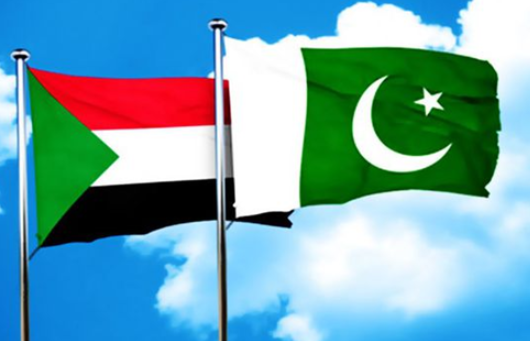Pakistan $1.5 Billion Deal: Weapons Over Peace

Lieutenant General Pilot Al-Tahir Mohamed Al-Awad Al-Amin, Commander of the Sudanese Air Force, accompanied by the Commander of Sudanese Air Defense and members of the Sudanese Military Industry Corporation, conducted a visit to Pakistan.
During the visit, the delegation met with the Pakistani Minister of Defence, the Chief of the Pakistan Air Force, and several senior officials.
The visit resulted in the Sudanese Army’s Military Industry Corporation signing a defense contract with Pakistan exceeding $1.5 billion, according to ProPakistani, which includes:
10 K-8 Karakorum trainer/light attack aircraft
20 Shahpar-2 unmanned aerial vehicles (UAVs)
150 YIHA-III UAVs
50 MR-10K UAVs
50 Ababeel-5 UAVs
Engines for MiG-21 fighter jets
150 ASV Mohafiz armored vehicles
Air defense systems of types HQ-9 and HQ-6
Media reports suggest that the contract is likely financed by a third-party country, given its significant scale. The contract is seen as further evidence that the Sudanese military remains committed to a military solution to the ongoing conflict and has no intention of engaging in negotiations.
Meanwhile, observers noted that the growing Sudan–Pakistan defense cooperation comes at a time when Pakistan–Turkey relations are also strengthening, particularly in the fields of defense and military manufacturing—an important context, considering Turkey’s well-known support for the Sudanese military.
Observers highlight that this deal marks one of the largest defense acquisitions in Sudan’s modern history, raising questions about the source of funding at a time when the country is struggling with civil war and economic collapse.
The scale of the procurement, particularly the focus on UAVs and advanced air defense systems, underscores Khartoum’s desire to tilt the battlefield dynamics in its favor rather than pursue a political settlement.
Regional Dimensions:
The growing Sudan–Pakistan defense cooperation is not happening in isolation. It coincides with Pakistan’s strengthening ties with Turkey in defense production, a development that could create a triangular defense axis involving Ankara, Islamabad, and Khartoum.
This triangle is significant given Turkey’s outspoken political and logistical support for the Sudanese military since the start of the civil conflict in April 2023.
Strategic Implications:
Analysts argue that the deal signals a clear intent by Sudan’s military leadership to internationalize its war effort by leaning on external suppliers and financiers.
Sudan’s Ongoing Conflict:
Since April 2023, Sudan has been engulfed in a brutal civil war between the Sudanese Armed Forces (SAF) led by Abdel Fattah al-Burhan and the Rapid Support Forces (RSF) under Mohamed Hamdan Dagalo “Hemedti.” The conflict has displaced over 10 million people, according to UN estimates, and created one of the world’s fastest-growing humanitarian crises.
Economic Collapse:
Sudan’s economy has been in freefall since 2021, worsened by international sanctions, frozen aid, and war-related destruction. The national currency has lost more than 70% of its value since the conflict began, raising doubts about how such a massive arms deal is being financed.
Pakistan’s Defense Industry Context:
Pakistan has in recent years sought to expand its defense exports, particularly UAVs and light aircraft, to Africa and the Middle East. Deals with Nigeria, Azerbaijan, and now Sudan reflect Islamabad’s ambition to position itself as a cost-effective alternative to Western and Chinese arms suppliers.
Regional Military Realignment:
The deal comes at a time of shifting alliances: Turkey’s active support for Sudan’s military, Pakistan’s closer defense cooperation with Ankara, and Sudan’s search for external lifelines suggest that the conflict is increasingly becoming part of a wider regional power struggle.



